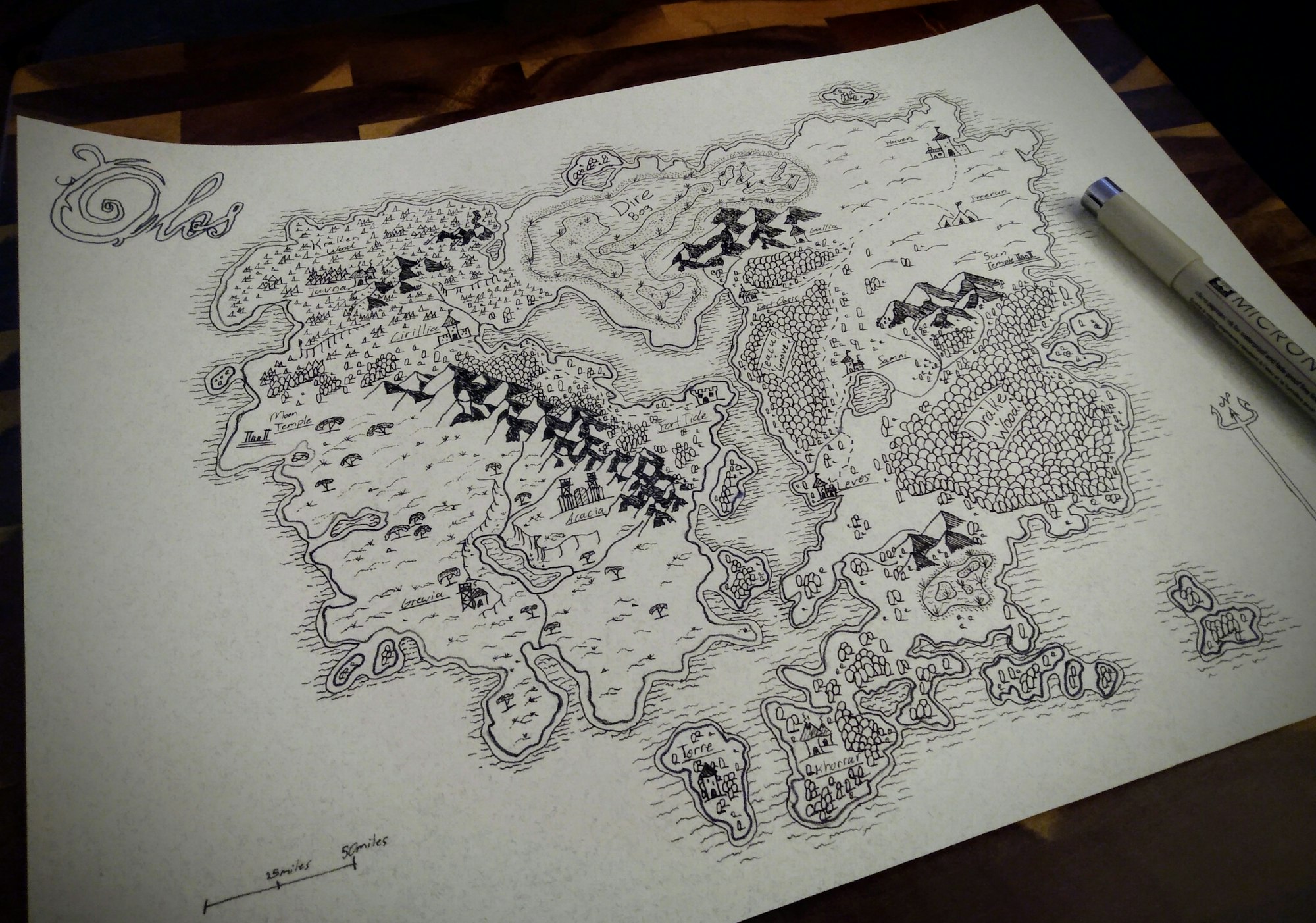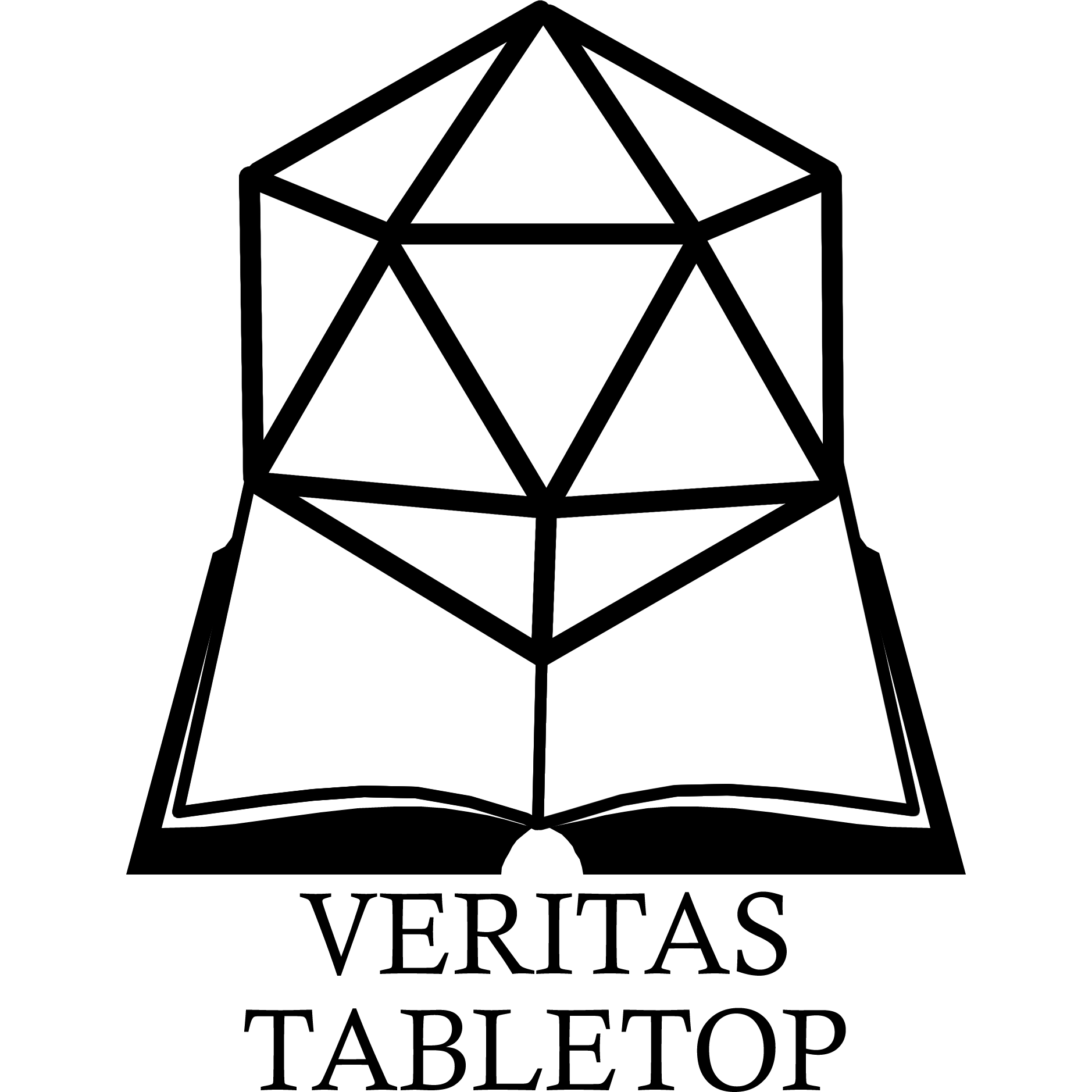Planning a Campaign: Session 0 and Player Backstories
I've been slowly putting out this series about actually prepping a campaign, so you can see how I incorporate all of the history and GM theory stuff I talked about on the blog into an actual campaign. Check out the whole series below:

Today's installment of that series focuses on the step I've been living in for the past month or so: incorporating your players!
So far, I've written up a premise for the campaign, picked a setting in my homebrew world, and started fleshing out factions and even a few keystone NPCs. But before we go too deep into prepping out the GM side of things--such as writing specific storyline premises--I want to make sure that I can weave in the party. Getting ahead of yourself can result in boxing out your players; while I'm a big believer in the GM having real control in framing the narrative instead of everything being framed as fully collaborative (it is part of why I tend to bounce off of Powered by the Apocalypse games), you do want to avoid railroading your party, prepping too much so that you end up wasting prep, or prepping scenarios that end up not feeling relevant to your characters. I've had campaigns in the past where I overprepped, and while a happy medium was eventually established, it did lead to some mismatched vibes between the characters and the early plotlines. So for this one, I'm holding off!
What to do in the meantime? Start talking to your players.
Session 0
I'm not going to go into too much depth about the values of having a session 0. A lot of digital ink has already been spilled on that topic. There's also been a lot of authors who have written about safety tools, and their utility or lack of utility among long-running groups (which my players are... mostly; we have a few new folks, but a lot of my party has played together in various campaigns, in various combinations, for a while).
I broke down my Session 0 into three parts, which ended up being a structure that worked really well for me.
Part 1: Vibes
In part 1, we talked about table vibes. We talked about the tone of the campaign (we're telling a narrative here, and there's a level of seriousness I'm expecting, which is the norm for my campaigns; jokes and bits are good and fun and encouraged, but you do need to go deeper with your character than Boblin the Goblin). We reviewed the basics of the setting and the pitch, which I had sent around in written form already, but this was a chance to clarify and go deeper.
We also talked about the expectations regarding participation for the game. Due to the fact that a lot of my players have busy schedules, I want a West Marches-adjacent style of campaign. But, given the premise of the campaign being urban, developed, and not really exploratory, the normal sort of West Marches doesn't work. Instead, we'll do groups investigating a particular story each week. But my expectation is that every person will be able to fill out a weekly google form about their activities (such as drumming up new leads) even in weeks where they are not playing at the table.
But there were a few things that were less review of existing table norms and , and more specifics that I wanted to directly discuss and settle on.
We settled on a specific tone or focus for the newspaper my party would be running: mostly "fluff" pieces, gossip, and "fun" news around the city, but with the occasional piece of hard-hitting journalism. Sort of the reputation of a magazine like Playboy, where you wouldn't think of them as doing hardcore journalism until they publish an incredibly impactful interview. This fits with the history I mentioned in part 1 of the series: early newspapers were mostly political or financial, but as press laws became freer and so competition became higher and prices came down due to competition, ads became more common and the content of the paper became more varied as printers sought to find a niche to dominate. Looking for historical parallels, I found the original Tatler as a relevant historical paper doing the sort of journalism that my players seemed to want to do.
This is also where we introduced my safety tool of choice: lines and veils, with a caveat. While I agree with the criticism that, for a long campaign with a running group, open and honest communication trumps any specific safety tool (which can often be overly proscriptive), I think doing opening lines and veils is very handy. I lay out a few potentially sensitive topics that I expect will be in the campaign – things where if it is a line for you, I'd probably recommend not playing. But it is a chance for people to highlight something specific that they don't want to see at the table that I might not have put together, or might have not thought to specifically identify as something not to do. I also allow players to submit lines or veils anonymously, after session 0, in case they don't want to share why something might be a line. Still, communication can absolutely add things to this list mid-campaign; this is just an initial way to check in and make a list of topics that we don't want to see at the table.
Part 2: The Rules
As I mentioned in Part 1 of the series, I'll be using a new system for this campaign, which neither I nor any of my players have ever used before: a slightly modified version of Honor + Intrigue, itself a hack of Barbarians of Lemuria. While the rulebook is available to the players, obviously, we went over some key things that I wanted to highlight about the system: basic rules, some key parts of character creation, and ways that it is different from systems that the players have played in the past.
Specifically, we also talked about tone here: the campaign is not built around combat, because the party are journalists, and so a hyper-balanced combat experience is not what I'm after. The system does have some "stronger" or "weaker" options, but the focus is building a character that reflects your concept in vibe. You won't be "worse off" in the way that you would in D&D if you build a character that is completely unoptimized.
I definitely recommend this being a part of your session 0 any time you're trying out a new system.
Part 3: Characters
The last part of Session 0 is to start the process of thinking of characters. I'm not a fan of fully collaborative backstory building. I like PCs to have secrets that come to the table during play, rather than being exposed OOC before the campaign even begins. I don't want to put people on the spot, and instead I want to give them time and space to let the character grow when time permits.
But, I do want to establish a few things about the characters:
1) Your character needs to have a reason to be in the campaign. For this campaign, that means "why did you join THIS new newspaper?" There's plenty of ways to take this, from a specific niche or newspaper "beat," to one of our characters being an apprentice who helps actually man the printing press but wants to get into journalism and writing and actually reporting stories. But having something driving you is essential in making sure that the characters feel like they belong.
2) I encouraged the players to have a link to another PC. I've mandated this in the past, like when I ran Cast Away for my group. But I didn't want to necessarily require it this time, particularly if someone had a character concept that would give them less past connection while still having a reason that they're involved with the party.
3) I asked for a full backstory from the party by the end of November (my session 0 actually took place in October, so this was both plenty of time to write something and would leave me enough time to weave those characters into my plotting before the campaign starts in January). While I love doing questionnaires, for a longer campaign like this, I decided ultimately to focus on having players just write me good backstories. There's more depth that you can get from a full backstory... though I did go back and forth on this decision. Still, I also highlighted the advice for building a good backstory: making sure that your story isn't over already or that all your plot threads aren't already closed off, thinking about your moral compass and how it impacts the ways you'll interact during the campaign, and to tie your backstory into the themes of the campaign. I also specifically brought up the idea of making explicit "knives" for your character, and highlighting those so that they're easy for me as the GM to refer back to. I asked everyone for a minimum of three specific guaranteed ways to emotionally torture their character.
Conclusion
With our session 0 complete, the ball is now in the players' court. Over the next weeks and even month, I've been fielding specific lore questions, helping players flesh out backstories, and facilitating connecting players who have logical points of overlap in their backstories or character concepts.
And as those backstories come in, accompanied by NPCs, I start slotting them into my factions. Are they one of those two faction leads? Are they a lesser member of the faction, an ally or a resource for that faction's interests? I start flinging NPCs together: have these two met, since we're all in the same city?
Specifically, since my players wanted most of their focus to be more gossip and drama rather than political maneuvering, I start thinking about rumors and gossip about these characters. What would their reputation be? What might be a plausible lie that I can use to mislead some of the PCs? What drama would they be involved with, and what stories are swirling at the start of the campaign for the initial plot beats to center around?
Characters drive story, and so building out your cast through what your players give you, lets the first seeds of storylines to start emerging. The hardest part is the patience to wait for all the backstories to come in, to give them all equal weight in my planning, instead of jumping towards the first plot seeds that percolate.
Hopefully this outline of my session 0 is helpful in framing your own Session 0s! It can be an invaluable tool, even if you're doing something different than collaborative character building which is what a lot of online advice about session 0 seems to focus around.

